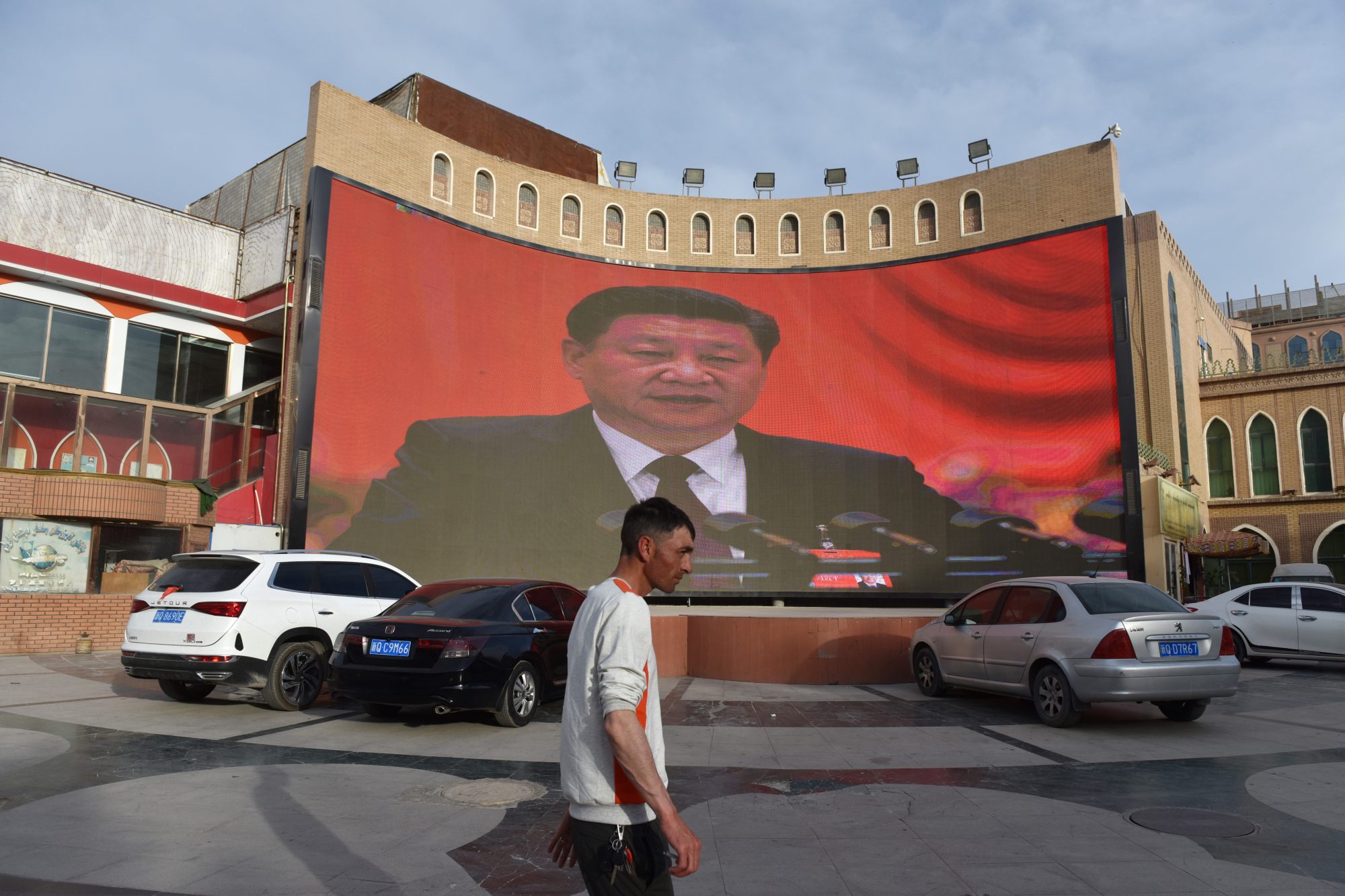
China steps up defence of Xinjiang policies and says sanctions are an ‘industry genocide’ designed to hurt business
- A spokesman for the regional government says Western sanctions are ‘waste paper’ and an attempt to hamper its companies internationally
- Separately, a government think tank publishes a lengthy report rebutting ‘slanders’ from Adrian Zenz, a researcher who documents alleged human rights abuses
Western sanctions targeting Xinjiang are no more than “a piece of waste paper” and their real purpose is to hamper Chinese companies internationally, the region’s government said on Friday.
“Their real purpose is to conduct an ‘industry genocide’, to sabotage the participation of Xinjiang in the global value chain,” Xu Guixiang, a spokesperson for the Xinjiang regional government told a press conference in Beijing on Friday.
Xu acknowledged that the sanctions will have an impact on exports from companies based in Xinjiang, but he insisted that in the long term, these companies will increase their competitiveness by investing in science and technology.
Friday’s press conference was the eighth such event, where officials from the region speak to foreign reporters in an effort to rebut the accusations point-by-point.
On Friday, the US-listed Daqo New Energy Corp hit back at allegations that its factories used forced labour, saying it would let investors see for themselves.
China hits out at British parliament after it declares Xinjiang’s Uygurs are subject to genocide
The company will invite as many as 50 analysts and investors to visit the plant in mid-May, said He Ning, the firm’s director of investor relations, Bloomberg reported.
He also told Friday’s press conference: “There’s no so-called forced labour. So-called surveillance on ethnic minorities and oppression against their customs and religious beliefs are all fictitious.”

All of the company’s workers in Xinjiang are compensated for their work, said He, adding that the average salary was about 6,000 yuan (US$930) a month.
Meanwhile, an official think tank has published a lengthy report describing Adrian Zenz, a German researcher whose research into the region has been widely cited by Western governments and human rights groups, as a “slanderer”.
On Friday, the Chinese Academy of Social Sciences, a central government think tank, published research that aimed to rebut Zenz’s accusations on a point-by-point basis.
It challenged a study that said forced sterilisation was widely practised among ethnic Uygurs to reduce its population, by saying that while birth controls had been imposed on ethnic Han Chinese residents of the region in 1975, other ethnic groups were not affected by the measures until 1992 and their implementation still allowed a degree of flexibility.
“According to statistics, the Uygur population in Xinjiang grew from 10.17 million in 2010 to 12.72 million in 2018, an increase of 25.04 per cent,” Xinhua said, citing the report.
“The growth rate of the Uygur population was not only higher than that of the whole Xinjiang population, but also higher than that of all ethnic minorities in Xinjiang, which was 22.14 per cent, and obviously higher than that of the Han population in Xinjiang, which was 2.0 per cent.”
Xinjiang ‘genocide’ claims are ‘fake news’, Chinese foreign minister says
Zenz’s accusations were based on interviews with women who said they had been forcibly sterilised or fitted with contraceptive implants, as well as official documents that showed an 84 per cent drop in birth rates in the two largest Uygur prefectures between 2015 and 2018.
The Chinese Academy of Social Sciences also said that Zenz’s research was readily accepted by Western politicians and media without verification.
–


